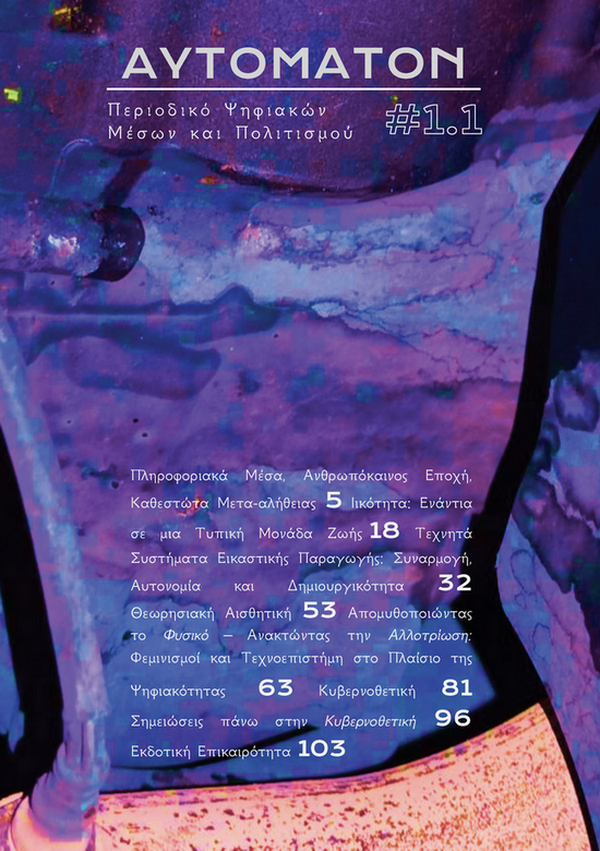Ιικότητα: Ενάντια σε μια Τυπική Μονάδα Ζωής
Abstract
Ο ιός υπάρχει στον μεθοριακό χώρο μεταξύ ζωής και μη ζωής. Μια μικρή ποσότητα γενετικού υλικού εσωκλειόμενη σε ένα τέλεια γεωμετρικό μοριακό περίβλημα, είναι με κάποιο τρόπο ικανή να αυτο-αναπαραχθεί, να χειριστεί το περιβάλλον της, να προσαρμοστεί και εξελιχθεί – όλα χαρακτηριστικά που θα θεωρούσαμε ενδεικτικά της ζωής. Και όμως, ένας ιός δεν αναπνέει. Είτε την αποκαλέσουμε πράνα, τσι είτε βασική βιοχημεία, η αναπνοή είναι απλώς μια μεταβολική διαδικασία για την μεταγωγή ενέργειας. Η μικρότερη οντότητα ικανή να αναπνεύσει είναι το κύτταρο – ίσως ο λόγος που το χαρακτηρίζουμε ως «θεμελιώδη μονάδα ζωής». Τα τελευταία λόγια των Έρικ Γκάρνερ και Τζωρτζ Φλόιντ, «Δε μπορώ να αναπνεύσω,» αντανακλούν την ιδιαίτερη εμπειρία του να είσαι μαύρος στην Αμερική. Όμως, οι ίδιες αυτές λέξεις αντηχούν και σα φαντασ(μα)τικός πόνος όταν μια παγκόσμια πανδημία αφαιρεί τις ζωές εκατομμυρίων, και ανεξέλεγκτες πυρκαγιές αποδεκατίζουν τα δάση – τους πνεύμονες της γης. Σε αυτή την πλανητική ασφυξία, εξετάζουμε αυτό που δεν αναπνέει αλλά παραμένει έμβιο – τον ιό.
Article Details
- How to Cite
-
Gupta, S., & Bolin, H. (2021). Ιικότητα: Ενάντια σε μια Τυπική Μονάδα Ζωής. Αutomaton: Journal of Digital Media and Culture, 1(1), 18–31. https://doi.org/10.12681/automaton.28574
- Issue
- Vol. 1 No. 1 (2021)
- Section
- Articles

This work is licensed under a Creative Commons Attribution 4.0 International License.
Authors wishing to publish articles in this journal agree to the following terms:
1. The Authors retain the Copyright and grant the journal the right of first publication while at the same time the copyright of the work is protected under the Creative Commons Attribution License which allows third party licensees to use the work as they wish provided they acknowledge the work's authorship and initial publication in this journal.
2. Authors may enter into separate additional contractual arrangements for the non-exclusive distribution of the published journal version of the work (for example, posting it to an institutional repository or publishing it in a book), with acknowledgment of its initial publication in this journal.
3. Authors are allowed and encouraged to post their work online before and during the submission process (e.g. on their website) as this can lead to productive exchanges as well as earlier and more citations of published work (See The Effect of Open Access).



